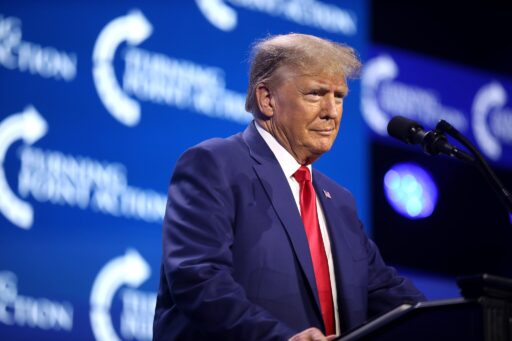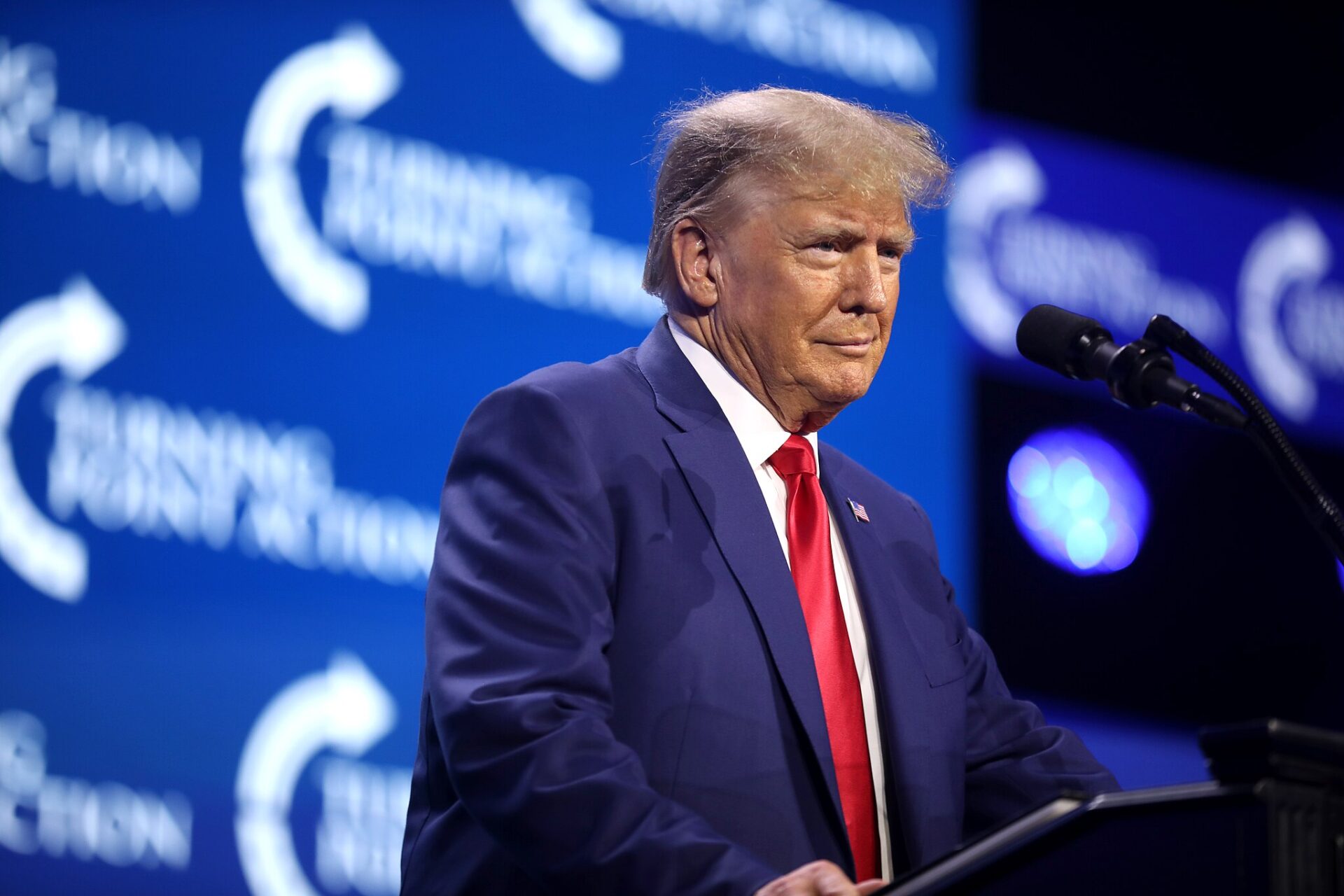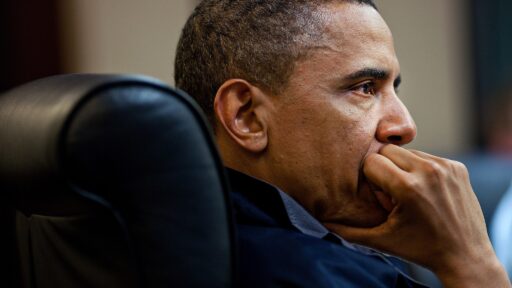Trump Losing Black Voter Support?
Former President Donald Trump has faced significant backlash over recent comments questioning Vice President Kamala Harris’s racial identity, a move that may jeopardize his efforts to appeal to Black voters ahead of the November election.
Trump sparked controversy when he suggested that Harris, who is biracial, had “turned Black” after previously identifying predominantly as Indian. Harris, throughout her political career, has consistently highlighted both her Black and Indian heritage.
The reaction to Trump’s remarks, made during an interview at the National Association of Black Journalists (NABJ) convention, was immediate and intense. Experts have argued that these comments could severely damage Trump’s standing with Black voters. “It’s hard to see how this improves Trump’s image among Black voters,” said Tabitha Bonilla, a Northwestern University professor. “The negative response on social media, including the hashtag #WhenITurnedBlack, indicates a significant backlash.”
Critics quickly took to social media, and Harris’s campaign issued a strong condemnation of Trump’s statements. Michael Tyler, communications director for Harris for President, accused Trump of showcasing the same “hostility” he has demonstrated throughout his career. “The aggression displayed today is consistent with his divisive rhetoric from past rallies and his Project 2025 agenda,” Tyler said. Project 2025 is a conservative policy initiative linked to Trump, which Democrats have used as a campaign point against him.
Polling data from the Black Census Project, which surveyed over 200,000 Black Americans between February 2022 and October 2023, shows Harris with a 71 percent favorability rating, while Trump’s stands at just 5 percent. However, Scott Tranter from Decision Desk HQ noted that Trump previously garnered 10 to 15 percent of Black voter support when facing off against President Biden. “Trump could potentially see a similar level of support if he manages to connect with voters,” Tranter suggested.
Despite some Republicans cautioning against Trump’s racially charged remarks, the former president has doubled down. On Truth Social, Trump shared a nostalgic photo of Harris in a sari with a comment acknowledging her Indian heritage, further inflaming the situation.
Democratic strategist Antjuan Seawright criticized Trump’s comments as a continuation of his “Birtherism 2.0” strategy, a reference to Trump’s previous false claims about former President Obama’s birthplace. “Trump’s rhetoric continues to energize a segment of his base that thrives on division and racism,” Seawright added.
Trump’s comments about Harris were in response to Republican claims that she was a “DEI hire,” suggesting her vice presidential selection was based on race rather than merit. This narrative has been rejected by Democrats and Black leaders, with some Republicans acknowledging that such arguments are detrimental to their cause.
Harris’s campaign reported raising $310 million in July and has secured endorsements from notable figures and organizations, including the Congressional Black Caucus and the Obama family. Support from key demographics, like Black men, is growing, with organizations such as Black Men Vote rallying behind her. “The enthusiasm for a potential President Harris is palpable,” said Joe Paul, a board member of Black Men Vote.
As Harris officially became the Democratic presidential nominee, the debate around her racial identity underscores a broader need for more nuanced conversations about race. “Identity is complex and multi-faceted,” Bonilla remarked. “Our discussions should reflect this complexity rather than reducing individuals to single narratives.”
This ongoing dialogue highlights the critical role racial and identity issues will play in shaping the 2024 election landscape.







